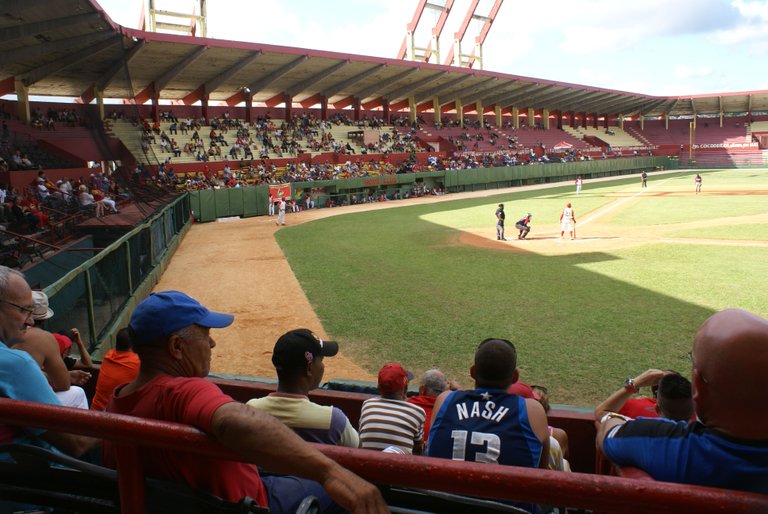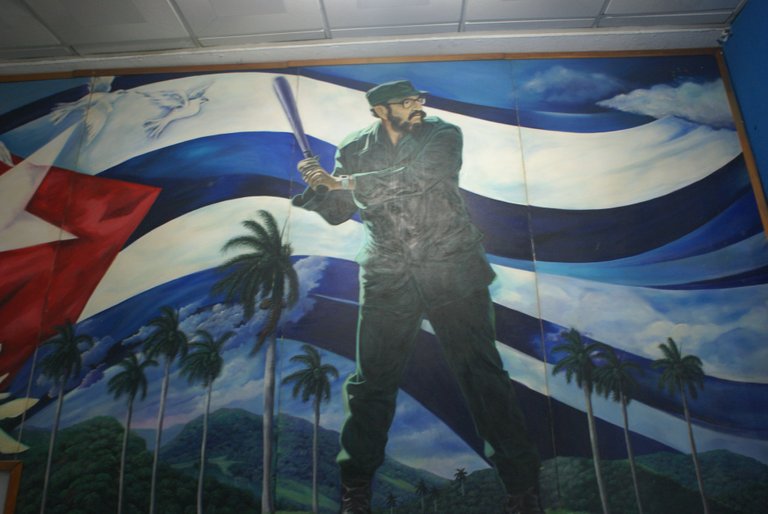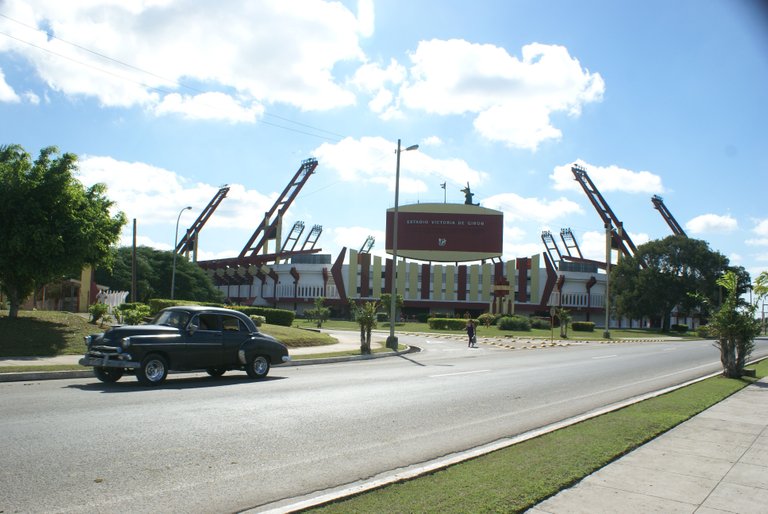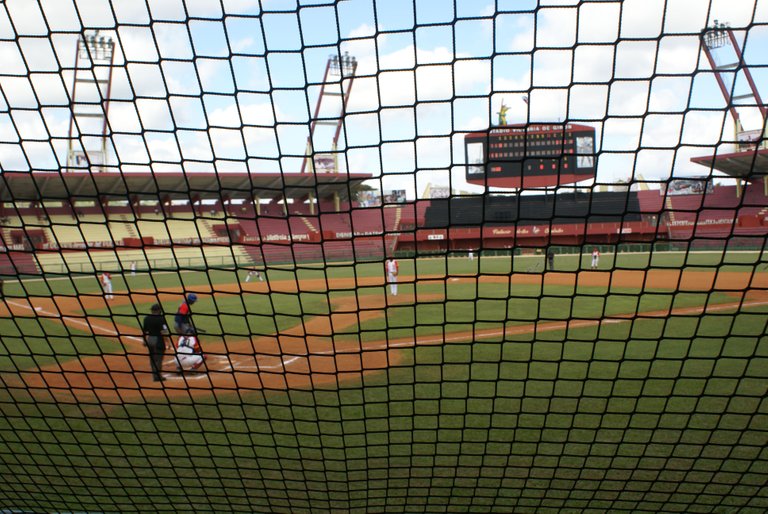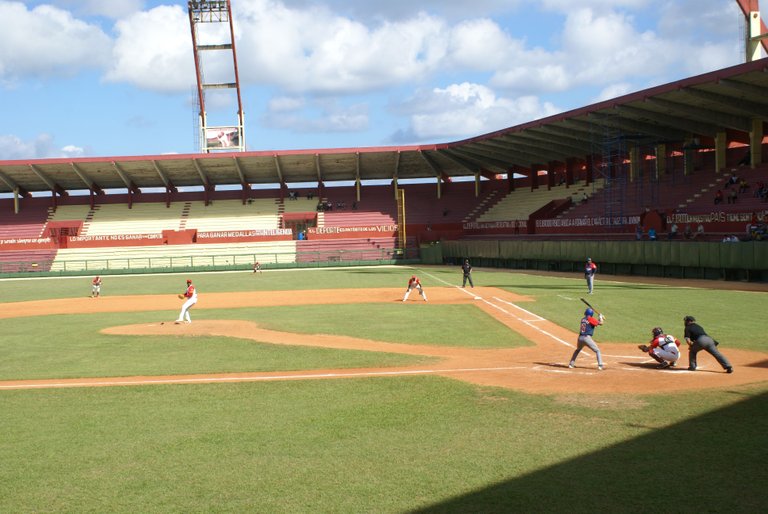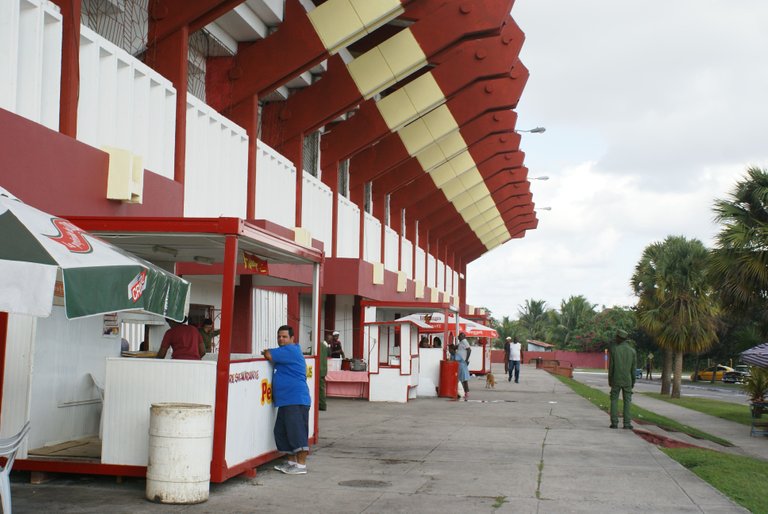Watching a baseball game in Cuba is a whole different experience than elsewhere. Whether you’re a baseball fan or not, it’s definitely worth embracing this national pastime, which the Cubans can be very passionate about. For Canadian and American baseball fans especially, this might be the highlight of your trip to the country. But as an European myself, it was also one of mine.
You would think that it should be pretty easy to watch a baseball game in Cuba. But the lack of internet and information in newspapers makes its difficult to know when and where a game is scheduled to be played. It took us a lot of effort, but on one of our last days in Cuba we finally managed to go to one.
Cuba’s baseball tradition
If you ask any Cuban what the country’s national sport is, everyone will tell you baseball (followed by boxing and chess). The tradition of baseball in Cuba dates back to the 1860s, when it was introduced by Cuban students returning from their studies in the US, and American sailors who arrived on the island. During the Spanish colonization of Cuba, bullfighting was very popular, but with time it was replaced by baseball. It even got banned for some time and therefore has been a symbol of freedom to the Cuban people.
After the Cuban revolution, many Cuban baseball players have defected to the US and other countries. To mention a few- Yoenis Céspedes of New York Mets, Yunel Escobar of Toronto Blue Jays, and Rusney Castillo of Boston Red Sox are top class Cuban players in the MLB.
Fidel Castro, who died on November 25, 2016, was actually a baseball player, a pitcher with a good curveball. There’s even rumors that he once tried out for the Washington Senators and New York Yankees in the late 40's but was rejected…
The National Series
There are 16 teams in the Cuban National Series, each representing one of the 16 provinces. The strongest and most popular teams in the league are Havana Industriales and Santiago de Cuba, who also hold the highest number of titles (12 and 8 respectively). Other good teams include Ciego de Ávila, Villa Clara and Matanzas.
The baseball season goes from August till April, with play-offs starting in December. Games are played every 1-3 days, usually in the afternoon between 1-3 pm.
During our stay in Matanzas, we were actually told that games are played in the early afternoons because the stadium lights are broken… but some games in other cities may be played in the evenings.
The best way to find out when and where a baseball game is set to be played (which worked for us) is to ask, ask and ask. All you’ll need is a little bit of persistence ;) Because even though baseball is the national sport, it seems like only a few people follow the league. The lack of internet and relevant information doesn’t make things easy either.
We probably asked ten or more Cubans - cab drivers, casa owners, shop vendors and waiters, but no one was able to help us. But the key is to find the right person - aka a local baseball fan, for example a sporty looking guy or someone with a baseball hat.
In our case it was the husband of our casa owner, a tall and strongly built Cuban, who turned out to be a Matanzas fan. He made a few phone calls for us and so found out that there was a game scheduled for the next day!
We took a cab to Mantanzas from Varadero, where our local casa owner made another phone call to confirm the hour of the game. By noon, we were on our way to Victoria de Girón Stadium to watch the game between Mantanzas and Camagüey at 1:15pm.
Other tips...Another thing you can do is taking a local as a guide with you to the baseball game. This may facilitate your efforts of finding the gates and buying a ticket, which is slightly more difficult than we’d expected. Exactly why, I explain further below.
I also recommend following the website www.baseballdecuba.com where schedules are posted a few days in advance. Here is the link to the schedule. However be sure to confirm the time and place of a game, as they are subject to frequent change.
At the stadium, there are usually no ticket booths. Rather than that, tickets are sold upon entering the gates where you’ll find a plainclothes local sitting around. He or she just collects the money, but may give you a small ticket if necessary.
While there are gates all around the stadium, some are closed and it can be quite confusing as to where the actual entry is. The main entrance in usually somewhere around the corner of the diamond. To find it, you can walk around the outside of the stadium. It should be by the food stalls. Or just ask anyone where the main entrance of the stadium is, which in Spanish should sound something like: ¿Dónde está la entrada principal al estadio? and they will most definitely point you in the right direction.
While Cubans pay a mere 5 pesos, which is the equivalent of 20 dollar cents, the “official” price for foreigners is 3 CUC (3 USD). It is very common in Cuba for tourists to be charged significantly more, but you can bargain the price. We ended up paying just 1 CUC per person.
Upon entering the diamond, you can sit wherever you want, stadiums rarely fill up. There’s plenty of police and security during the games, but the atmosphere is generally very peaceful and everyone is friendly with the tourists.
In contrast to the US and Canada, alcohol is not allowed at the stadiums in Cuba, but snacks and lemonade are sold during the game. There’s also some food stalls set around the stadium selling pretty much only beer, refrescos, hamburguesas and grilled chicken.
Going to a baseball game was definitely one of the highlights of my trip to Cuba. The atmosphere at the stadium is really something. Cubans can get very emotional about the game, shouting and cussing in Spanish at the umpires for throwing a player out of the game. It’s a great way to experience true local Cuban culture.
FOLLOW ME
Steemit: https://steemit.com/@thisisjhonny/
Facebook: https://www.facebook.com/Travelpoppies/
Website: https://travelpoppies.com
